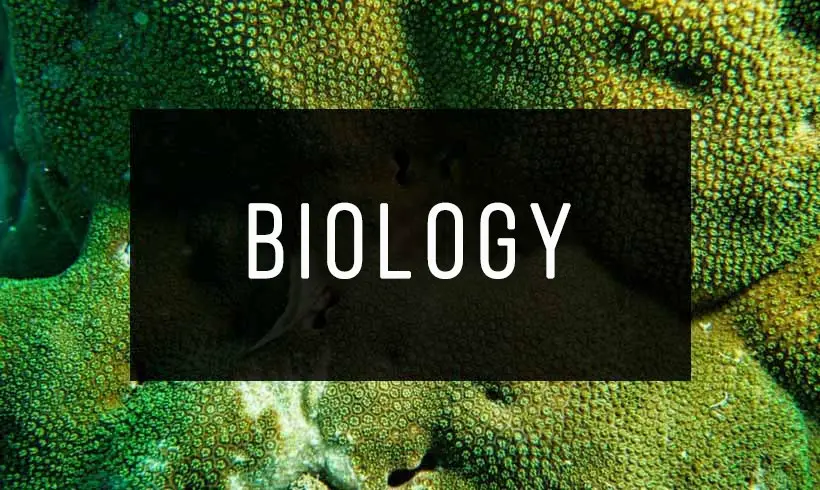Welcome, biology lover! If you’re searching for the best biology books to download for free, you’ve come to the right place!
Our platform is dedicated to providing quality educational resources, and we take pride in being your reliable source for everything related to biology.
Here you’ll find an extensive library of biology books, covering topics from cell biology to genetics and ecology. We’ve got everything you need to feed your curiosity and expand your knowledge in this exciting discipline.
Our biology books are available in PDF format, meaning you can access them from any device, at any time. This way, you can continue learning about the fascinating world of living beings, no matter where you are.
In addition to offering free access to these valuable resources, we also strive to keep our library up-to-date and constantly growing.
Are you ready to dive into the thrilling world of biology? Explore our collection of free biology books and start uncovering the secrets of life today!
1) Aging Biology Books

To provide you with information that may be interesting and useful, we have created a complete series of free books on the biology of aging in PDF format.
Aging is understood as a constant, multifaceted, and irreversible process with various biopsychosocial transformations that occur throughout a person’s life.
By consulting our texts, you can learn about the types of aging that exist, what its stages are, the changes that occur, the associated factors, and everything related to this biological process.
2) Animal Biology Books
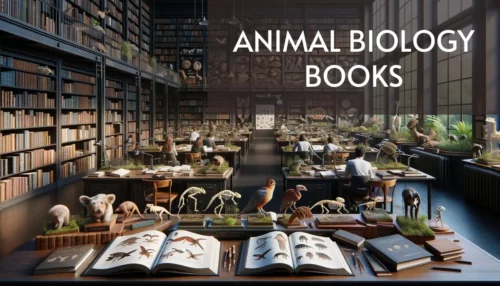
Animal biology is the science that deals with the study of what is called the Kingdom Animalia. This kingdom comprises all multicellular organisms. And which take energy through the digestion of food and also contain cells that are organized into tissues.
This is different from plants, which produce their nutrients from inorganic substances through the process of photosynthesis. Animals actively provide themselves with food. And they proceed to digest it in their internal system.
In animal biology, animal tissues are made up of different cells, which are joined together. Likewise, the extracellular matrix is formed through characteristic junctions.
3) Bacteriology Books
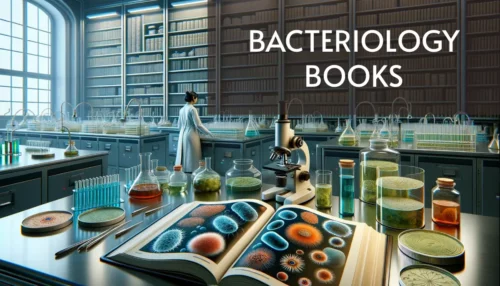
Bacteriology is the science that studies bacteria, the etymological origin of the term is Latin in which “Bacterio” means “Small animals” and “Logy” means “Study”. Bacteriology is a very extensive science, its study is almost infinite due to the millions of types of bacteria that have not yet been discovered or that have not yet manifested themselves in multicellular organisms.
Bacteriology specialists can prevent, diagnose and treat diseases caused by bacteria. These professionals are part of teams that work alongside physicians, nurses and others in the healthcare field. Bacteriologists study urine and blood samples, to name two possibilities. They are also able to examine soil, water and other elements for bacteria.
Bacteriology as a discipline appears as a necessity for physicians to test and apply the microbial theory of disease, as well as economic concerns related to food and wine spoilage.
4) Biotechnology Books
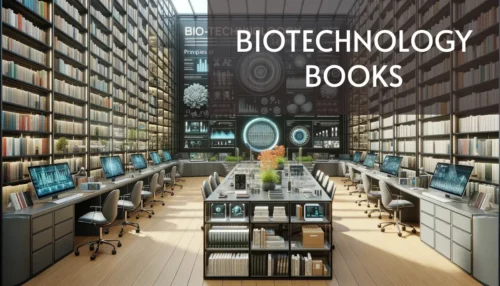
Biotechnology is defined as a multidisciplinary area, employing biology, chemistry and various processes, with great utility in agriculture, pharmacy, food science, forestry and medicine. The term was probably first used by the Hungarian engineer Karoly Ereky in 1919.
Biotechnology dates back to ancient times, when techniques for manipulating living organisms were already being used to obtain certain results, such as the production of wine or bread, the secret of which is fermentation by microorganisms, yeasts, known as traditional biotechnology.
However, with the development of various scientific areas, especially those related to the DNA molecule, they transformed the way of manipulating organisms, relying in part on recombinant DNA techniques, which led to the use of genetic engineering techniques, giving rise to modern biotechnology.
5) Books on Cell Theory
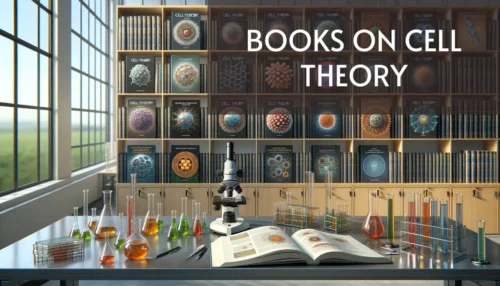
The cell theory postulates that all organisms are composed of cells, that the cell is the basic unit of life, and that all cells come from other cells. The postulates of the cell theory were only possible thanks to the invention of the microscope by the Dutch merchant Zacharias Janssen in 1590.
The first study or research that began to lay the foundations of the mentioned cell theory was carried out in 1665 by the British scientist Robert Hooke, who is considered the father of cells, their discoverer.
From his demonstration, this theory shed light on the origin of life and reproduction. Furthermore, it allowed for understanding the dynamics and processes inherent to what is now considered the most basic physiological unit of biology: the cell.
6) Botany Books
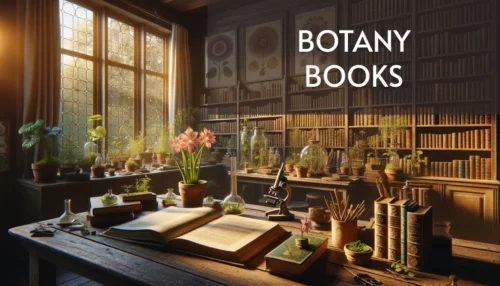
Botany (from the Greek botanē that means grass) is a science whose object of study is the kingdom plantae, comprising plants, fungi and algae. Botany is a part of biology, which is the science that studies all living organisms.
Core botany studies plants, fungi and algae in their composition, functions, development, location, adaptations, etc., but there is also applied botany that studies the possibilities of using these species as remedies, in cosmetic products or other uses.
The father of botany was Theophrastus, a disciple of Aristotle, who in the 4th century B.C. published the first works focused on the study of plants. Few advances were made in the following centuries. Perhaps the most outstanding figure in the field of botany is Carl Linnaeus, an eminent Swedish scientist of the 18th century who devoted most of his life to studying and classifying plants and animals.
7) Cell Biology Books
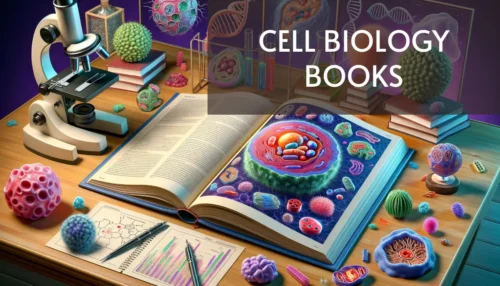
Cell biology is the science that studies the properties, characteristics, evolution, life cycle and interaction of the cell with its environment. Cell biology is also known as cellular biochemistry. Cell biology studies derive from previous disciplines such as cytology (the branch of biology that studies cells) and histology (the discipline that studies organic tissues).
Cell biology is essential for the quality of life of human beings. This is because its findings and research are decisive, for example, in preventing diseases such as cancer or Alzheimer’s disease.
It also helps to propose therapeutic alternatives to improve the repair processes of human tissues and organs, as well as to combat agents that cause severe disorders in living organisms, such as those that occur when bacteria or viruses appear.
8) DNA Books
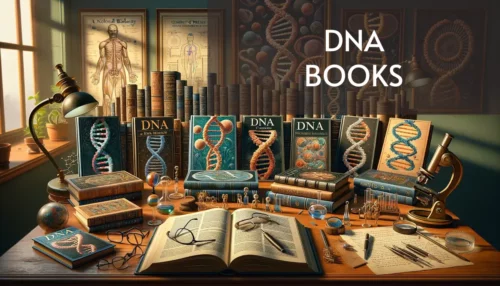
DNA stands for deoxyribonucleic acid: the biopolymer that harbors the data for protein synthesis and comprises the genetic material found in cells. It can be said that DNA contains the genetic information used by living organisms to function.
This acid also contains genetic data that will be hereditary, meaning it will be passed from one individual to another, from generation to generation, making its analysis and understanding crucial for conducting any type of scientific research or hypothesizing about an individual’s identity or characteristics.
DNA began to be studied in 1868 by Friedrich Miescher, who along with RNA, termed them nucleic acids. The description of DNA was first published in 1953 by James Watson and Francis Crick, both awarded the Nobel Prize in Medicine in 1962.
9) Ecology Books

Ecology is the science that studies the relationship between living organisms and the environment they inhabit. The definition of ecology is simple but the object of its study is very complex.
It was Ernst Haeckel, a German scientist, who created the term ecology in 1869 in order to designate a name for the science that studies the relationship between living organisms and the environment.
In particular, it studies how the environment influences their distribution, quantity, biodiversity, behavior, the interactions between different species and the modifications they can cause in the environment. Its levels of study are at the level of organisms, populations and communities of populations that make up ecosystems and the biosphere in general.
10) Environmental Biology Books
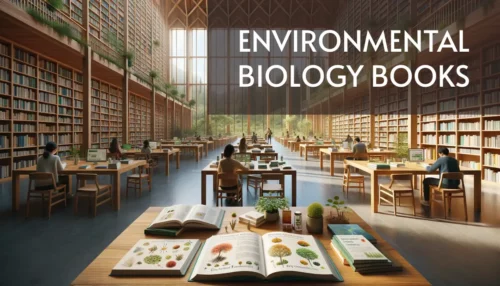
Environmental biology is a science that studies the possible solution to environmental problems and fundamentally requires a broad knowledge and understanding of the basic physical, chemical and biological processes that occur in nature, for which it is necessary to have qualified personnel to face this problem that integrates almost all branches of knowledge and that should converge in an effort to achieve an adequate relationship between humans and their environment.
Environmental problems are analyzed from a broad biological perspective, with a comprehensive vision of the components of the environment, in such a way that environmental policies can be formulated based on research processes.
The life sciences have undergone an extraordinary development in recent decades, which has led to a great diversification of the fields of study. Specifically, environmental biology studies the relationship of biological systems (organisms, species, ecosystems) with their environment.
11) Ethology Books

Ethology is the study of behavior in humans or animals. It is a scientific discipline oriented towards the analysis of behavior and character.
Ethologists’ studies focus on the behavioral characteristics specific to a particular group and how these develop to ensure its conservation in a given environment.
The objective of ethology is to investigate how animals relate to their environment. This includes aspects such as mating, aggression, socialization, the evolution of their behavior over time, among others.
12) Evolutionary Biology Books
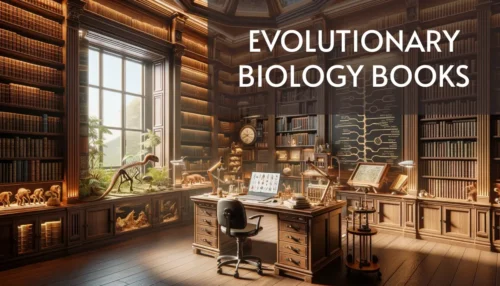
Evolutionary biology is the branch or discipline of biology that studies the origin of species and their changes, dissemination, differentiation and any evolutionary process that arises over time.
In short, it studies from the beginning of the species, covering all the transformations it has undergone over time, since it is in charge of identifying each species with its reproductive capacity and comparing the changes observed between each generation of the species studied.
To better understand this context, it is necessary to give a clear definition of evolution; evolution is defined as the progressive or successive change to which a population undergoes, this is influenced by the characteristics of the environment in which it lives, these changes are transmitted without alteration to subsequent generations since the changes are made at the level of the genetic structure.
13) Flower Books

A flower is the part of the plant responsible for reproduction. Its structure includes a short stem and a cluster of modified leaves that protect the sex cells and ensure the formation of new seeds.
Generally, flowers grow in an organized group called an inflorescence, although it is, of course, possible to find solitary or paired flowers. It can also occur that flowers grow so closely together that they give the impression of being a single flower, which is called a pseudanthium.
Floriography, also known as the language of flowers, was the name given to a technique through which a message could be conveyed. This method was used during the Victorian era, and it involved using flowers of different types and arranging them to transmit messages in codes, through which feelings that could not be expressed through other means could be conveyed.
14) Genetics Books
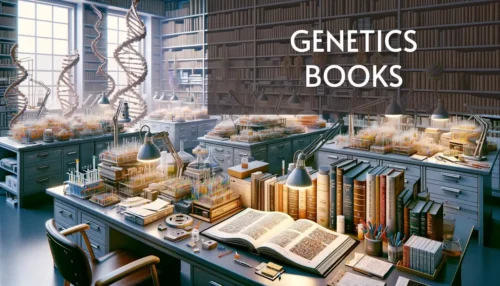
Genetics is a branch of biology that studies how hereditary traits are transmitted from generation to generation.
Genes are the units of information used by organisms to transfer characteristics to their offspring. The gene contains encoded instructions for synthesizing all the proteins of an organism. These proteins are the ones that will eventually give rise to all the characteristics of an individual (phenotype).
Genetics takes on special relevance when studying the transmission of diseases. In the same way that eye color is inherited from parents to children, there are also diseases that can be transmitted to offspring, in this case we speak of genetic or hereditary diseases.
15) Histology Books
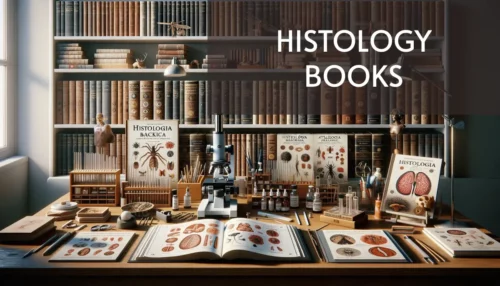
Histology is a branch of biology that studies the organic tissues of animals and plants in their microscopic aspects: characteristics, composition, structure and function. For this reason, its fundamental tool is the microscope.
The Italian Marcello Malpighi (1628-1694) is considered the founder of histology. It was this biologist and anatomist who detected living cells for the first time. Thanks to increasingly powerful microscopes, histology progressed throughout the 17th century and in the following years.
The results of histological studies are key to medicine and biology, both for understanding the properties of the organism under normal conditions and for examining the presence of pathologies, their evolution and possible diagnosis.
16) Marine Biology Books
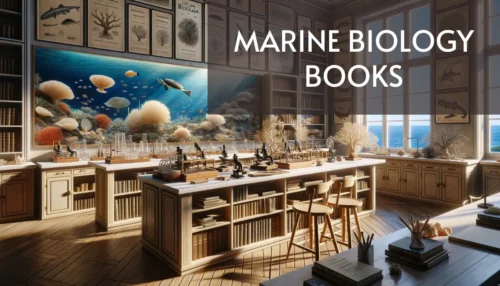
Marine biology is the scientific study of all organisms and species living in the aquatic environment. It must be taken into account that our planet is made up of two thirds of water and there are millions of living organisms that live in this natural environment.
Marine biology is strongly related to oceanography, the scientific study of the oceans. Within oceanography we can distinguish geological oceanography, which studies the seafloor, chemical oceanography, which studies the chemical components of the oceans, and physical oceanography, which studies the waves, currents, tides and other physical aspects of the sea.
17) Microbiology Books
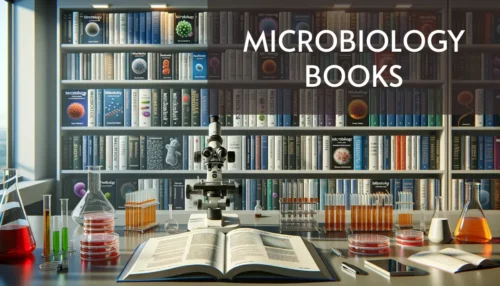
Microbiology is the branch of biology that studies microorganisms, both prokaryotes and viruses as well as simple eukaryotes, uni and multicellular. The organisms that are the object of this branch are those that are only visible under the microscope. Etymologically it comes from the Greek mīkros (small), bios (life) and -logia (treatise, science).
In the field of health and medicine, microbiology is of great importance since it is in charge of studying pathogenic microorganisms such as fungi, viruses, parasites and bacteria that can cause disease in humans.
Through microbiology, infectious diseases suffered by any patient are studied and thanks to it, the most appropriate treatment for each disease and patient can be determined.
18) Molecular Biology Books
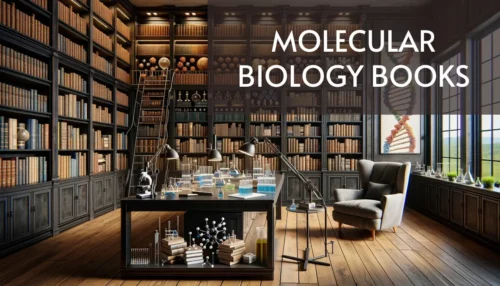
Molecular Biology is the scientific discipline that aims to study the processes that take place in living organisms from a molecular point of view. The following definition of Molecular Biology can be found in the Human Genome Project: The study of the structure, function and makeup of biologically important molecules.
This area is related to other fields of Biology and Chemistry, particularly Genetics and Biochemistry. Molecular biology is mainly concerned with understanding the interactions of the different systems of the cell, which includes many relationships, including those of DNA with RNA, protein synthesis, metabolism, and how all these interactions are regulated to achieve proper cell function.
19) Mushroom Books
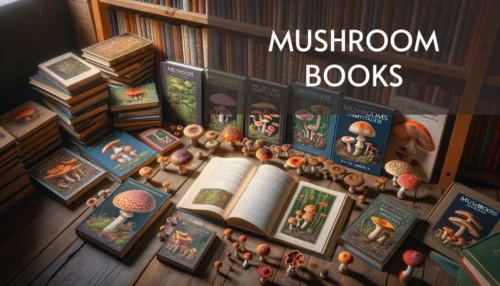
For all those interested in learning about the wide diversity of fungi that exist, and everything related to these fascinating organisms, we bring you the best free books on fungi in PDF format.
In these texts, you can find complete information about the types, characteristics, growth, cultivation, generation, elimination, and precautions that should be taken with respect to fungi; there are many aspects to consider in this field.
With the idea that you can obtain all the information you require or desire, we invite you to consult our texts full of details, data, advice, and guides related to fungi.
20) Nature Books
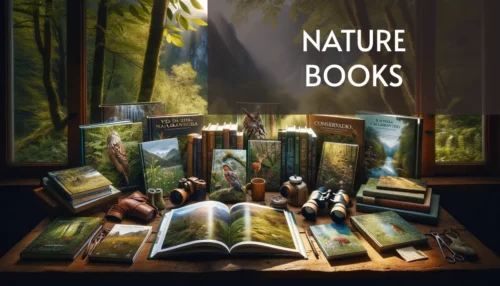
Nature is the term we use to refer to everything that has formed spontaneously on planet Earth. In this sense, nature encompasses all living organisms that inhabit the planet, all material and mineral substances, and all the processes inherent to the planet.
Likewise, it can be mentioned that nature also relates to the universe, galaxies, and everything that exists within them. Generally, nature does not take into account artificial elements created by humans.
There is the concept of human nature. With it, what is intended to be expressed is that every man or woman has a series of characteristics that are inherent to all human beings and inevitably relate to their ways of thinking, acting, and even feeling.
21) Oceanography Books
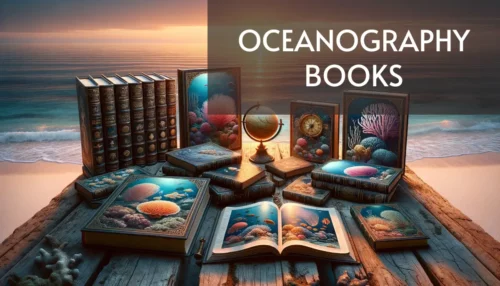
The science dedicated to the analysis of the oceans is called oceanography. Its experts investigate the various phenomena that occur underwater and work with the diverse organisms that inhabit the sea.
The concept of oceanography is supported by other sciences: physics, geology, chemistry, biology, and geography, relying on remote sensing or remote sensing – monitoring a phenomenon or object through wireless real-time scanning instruments – and other complementary sciences.
Indeed, its definition encompasses many aspects, such as ocean currents, waves, tides, and other geophysical fluid movements, marine organisms, dynamic ecosystems, plate tectonics, seafloor geology, as well as the exchange flows of various chemical substances within the ocean.
22) Physiology Books
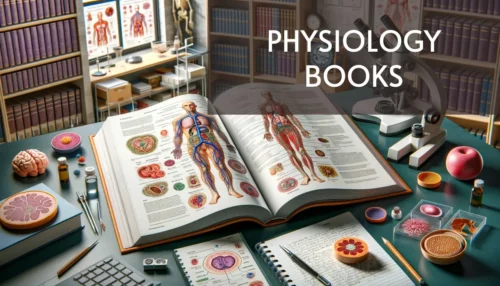
Physiology is the science that deals with the knowledge and analysis of the functions of living organisms. By bringing together the principles proposed by the other exact sciences (physics, chemistry, biology), this discipline gives meaning to the relationships between the elements that give life to living organisms.
Through the scientific method and experimentation, physiology is able to understand how living organisms change within an environment and to establish rules that determine the behavior of matter and energy in the course of life.
Depending on the type of living organism, we can distinguish three major groups: plant physiology, dedicated to the study of the functioning of the organs and tissues of plants, phyto-physiology is part of this group of physiology and develops specific taxa of plants; animal physiology; and human physiology, which is part of animal physiology.
23) Zoology Books
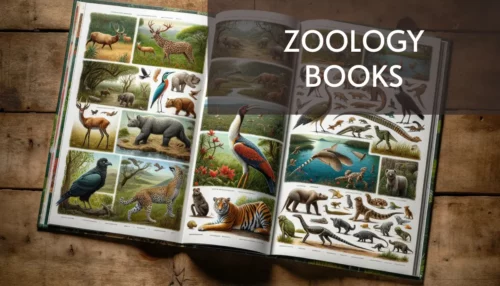
The term “zoology” comes from the Greek and translates as “science or study of animals”. The main objective of zoology is the examination of the morphological and anatomical description of the different animal species: their reproduction, development, behavior and distribution. Aristotle was the first zoologist since he devoted himself to taxonomy, which is, to the description and cataloguing of numerous species.
Zoologists are the specialists in charge of the biological taxonomy of all animal species, both living and dead. Some zoologists work in museums and are responsible for the maintenance and description of zoological collections.
Zoology has many subspecialties that deal with different groups, such as arachnology (spiders), herpetology (reptiles and amphibians), ichthyology (fish), ornithology (birds), malacology (mollusks),…
24) Biochemistry Books
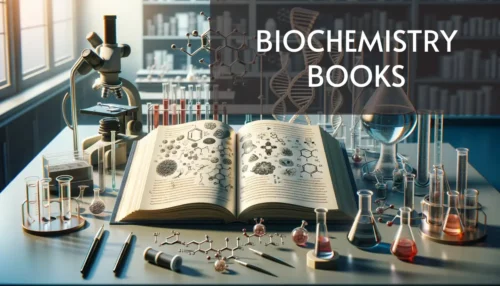
Biochemistry studies the chemical composition of living organisms, especially proteins, carbohydrates, lipids and nucleic acids. It attempts to understand the chemical basis of life: the molecules that make up cells and tissues, which catalyze the chemical reactions of cellular metabolism such as digestion, photosynthesis and immunity, among many other things. It is applied in many areas of medicine, agri-food, pharmacology, and several other areas.
It is an eminently experimental science, which resorts to the scientific method, that is to say, to the verification of experiments by means of numerous instrumental techniques of its own and also of other branches of science such as statistics and physics.
The beginning of this discipline dates back to 1828, when Friedrich Wöhler published an article on the synthesis of urea, which demonstrated that organic compounds, contrary to what was believed, can be produced artificially in a laboratory.


